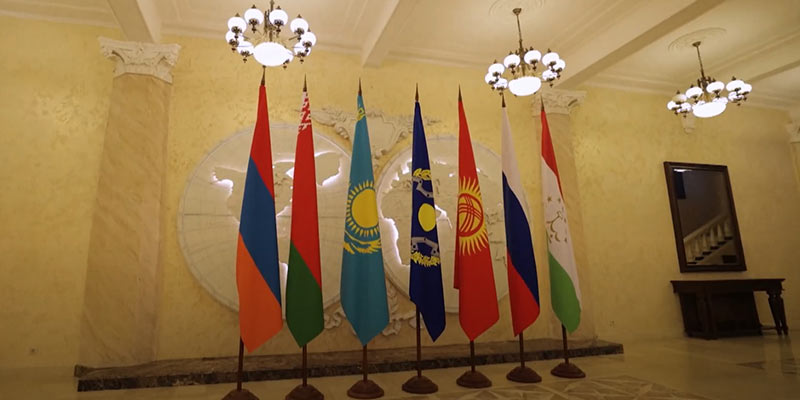- World
- Oct 11
Explainer / What is CSTO?
Kyrgyzstan cancelled joint military drills between the six nations comprising the Russia-led Collective Security Treaty Organisation (CSTO), which was scheduled to start on October 10.
The Kyrgyz defence ministry did not specify the reason for cancelling the ‘Indestructible Brotherhood-2022’ command and staff exercises, which were set to be held in the country’s eastern highlands from October 10-14.
The exercises were set to involve army personnel from CSTO members Russia, Armenia, Belarus, Kazakhstan, Kyrgyzstan and Tajikistan, and focus on securing ceasefires.
Collective Security Treaty Organisation (CSTO)
• The Collective Security Treaty was signed by Armenia, Kazakhstan, Kyrgyzstan, Russia, Tajikistan, and Uzbekistan on May 15, 1992.
• Article 4 is the key part of the Treaty, which states that: “If one of the Member States undergoes aggression, it will be considered by the Member States as aggression to all the Member States of this Treaty.
• The Treaty also provides a mechanism for consultations in case of a threat to security, territorial integrity and sovereignty of one or more member-states or a threat to international peace and security.
• The Collective Security Treaty Organisation (CSTO) was established on May 14, 2002.
• The Charter of the organisation was adopted on October 7, 2002.
• The CSTO received the status of Observer at the United Nations General Assembly on December 2, 2004.
• Current member states of CSTO are Armenia, Belarus, Kazakhstan, Kyrgyzstan, Russia and Tajikistan.
• The fundamental aim of the organisation is to continue and strengthen close and comprehensive relations in the foreign policy, military, military-technical spheres, coordination and joint efforts in combating international terrorism and other security threats.
• Collective Security Council is the highest body of the organisation. The Council considers the fundamental issues of the organisation’s activities and makes decisions aimed at the realisation of its goals and objectives, as well as ensures the coordination and joint activities of the Member States to achieve these goals.
• The Council includes heads of member states. The chairman of the Council is the head of the country holding the chairmanship of the organisation.
• CSTO Secretariat is a permanent working body of the organisation for the implementation of organisational, informational, analytical and consultative support of the activities of the bodies.
Tensions simmering within the alliance
• The move by Kyrgyzstan is the latest indication that tensions may be simmering within the alliance, formed in the early 1990s after the collapse of the Soviet Union.
• Last month, Armenia skipped a two-week drill held by the collective in Kazakhstan, after criticising the bloc for failing to openly side with it after large-scale fighting erupted on its border with non-member Azerbaijan in September.
• Russia and other CSTO countries effectively turned down Armenia's request for military aid, issued hours after hostilities began, and limited their response to sending fact-finding missions to the border. Armenian authorities had accused the Azerbaijani government in Baku of using heavy artillery and combat drones to strike Armenian army positions.
• Despite its apparent ambitions to provide a counterpart to NATO, the CSTO has at times struggled to define its exact purpose. Failure to engage in numerous security crises among its members over the years has prompted analysts to question its viability.
• Earlier this year, the bloc looked on impassively as two members, Kyrgyzstan and Tajikistan, were engaged in a bloody border dispute.
Manorama Yearbook app is now available on Google Play Store and iOS App Store

